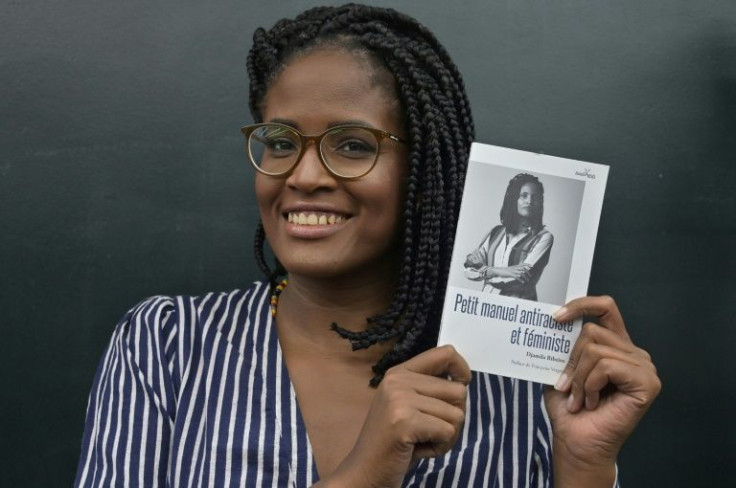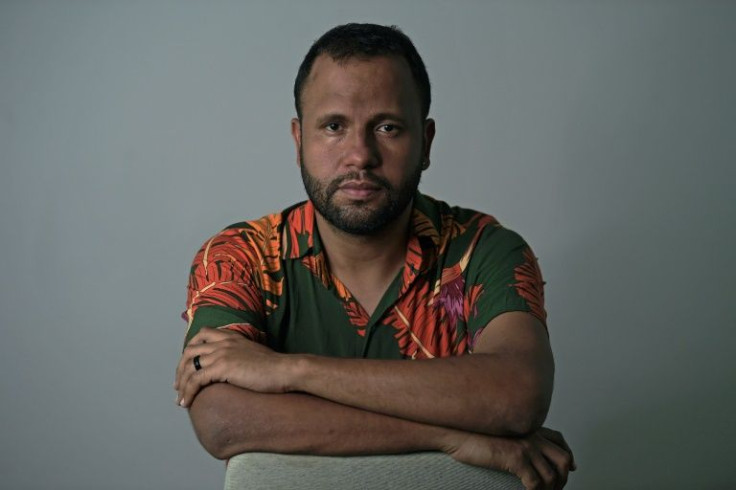Mixed-race Brazilians Increasingly Embrace Blackness
When Bianca Santana was little, her grandmother used to put her forearm alongside her mother's and her own, proudly showing how the family's skin had lightened across the generations.
Now 37, Santana, a Brazilian writer and activist, sees the long-loaded issue of race in her country through a different lens: she is proud to call herself black.
"When a child was born with lighter skin, that was cause for celebration," says Santana, recalling the messages she received about race growing up.
She remembers how her black grandmother used to make her pull her hair into a tight bun, so she wouldn't look like "'those little blackies.'"
"She liked to talk about how my mother's father had Italian blood, how his mother had blue eyes," she says.
Today, Santana, author of the book "How I Discovered I Was Black," proudly wears her hair in an afro, a style she only embraced at age 30.
Her shifting sense of identity is increasingly common in Brazil, the country with the largest black population outside Africa.
Brazil, which will celebrate Black Consciousness Day Saturday, struggles with structural racism and the legacy of slavery, which it only abolished in 1888 -- the last country in the Americas to do so.

But for the large mixed-race population in this sprawling country of 213 million people, the stigma long attached to blackness is fading.
"Mixed-race people in Brazil increasingly identify as black," Santana says.
"They're straightening their hair less, they're embracing black identity more and more."
Brazil's last official census, in 2010, found 43.4 percent of the population self-identified as "pardo," or mixed-race, and 7.5 percent as "preto," or black.
It was the first time black and mixed-race Brazilians constituted a majority. In 2000, 53 percent of the population identified as white.
The 2020 census was delayed by the coronavirus pandemic, but partial surveys indicate the trend has continued.

Today, 45.9 percent of the population identifies as mixed-race, 8.8 percent as black and 44.2 percent as white, according to mid-2021 figures from the national statistics institute, IBGE.
Meanwhile, less than five percent of management positions at Brazil's 500 biggest companies are occupied by blacks, who represent a disproportionately high number of the poor and unemployed.
White Brazilians earn nearly 75 percent more than people of color on average.
A long-dominant narrative in Brazil held that the country was a "racial democracy," where black, white and indigenous were so mixed that racism did not exist.
But that is a "myth," says Djamila Ribeiro, a philosopher and author of the best-seller "A Little Anti-Racist Handbook."
"Black movements have worked hard to raise awareness about blackness in Brazil, because the country was founded on that myth of a 'racial democracy,' and that has made it difficult for black people to even see themselves as black," she says.
"Many people who are black grew up not thinking they were."
A key turning point has been the introduction of race quotas for university spots and government jobs over the past decade and a half, says Roberta Calixto of ID_BR, an organization that promotes the inclusion of blacks in the workplace.
"Before, there was an ideology of 'whitening' in Brazil. We grew up with the idea that being white was the goal, because being black was considered bad," she says.
"Quotas have inverted that logic. Now, it's valuable to identify as black, which leads to a process of self-knowledge that I think is fundamental."
For Henrique Vieira, an Evangelical pastor with a black father and white mother, that awakening took years.
"When I was a boy, I had a book from church that talked about black being the color of sin and white the color of saintliness. I went home and told my mom I wanted to be the same color as her, that I didn't want to look like my dad," says Vieira, 34.
He says reading the Bible from a "less colonialist" perspective and getting involved in social movements helped him understand the heavy weight of racism, including in his own life.
"It's been a life-long conquest to identify as a black man," he says.
© Copyright AFP 2024. All rights reserved.





















